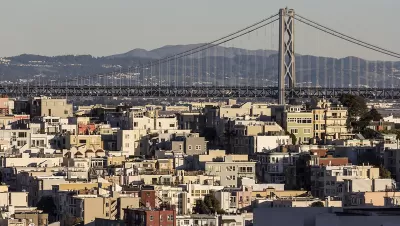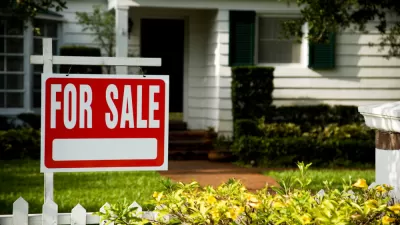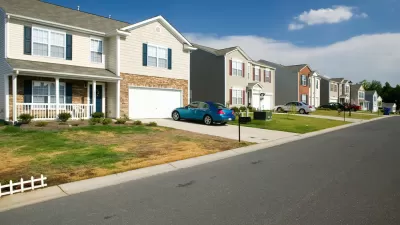The tech industry has created massive wealth, and the impacts on the real estate market are most dramatic in San Francisco.

Alexis C. Madrigal reports on the influence of money from the technology sector on San Francisco’s already tight and astronomically expensive real estate market. Deniz Kahramaner, a data scientist working in real estate, used title-company data to gather information about homebuyers and found that much of the money came from the tech industry, says Madrigal:
Fully 51 percent of them worked in software. They bought in specific, desirable neighborhoods closer to San Francisco’s tech companies, as well as the highways and train lines that lead south into Silicon Valley. They were less likely to buy in the foggy Sunset, which is the worst commute to tech businesses.
A number of IPOs are on the horizon, and the San Francisco housing market could see major impacts from the flood of big money. "[Kahramaner] foresees 3,885 new buyers looking for houses less than $3 million, in a market in which fewer than 6,000 homes total sell per year. At the top end, it gets even crazier—with more than 1,000 buyers looking from $3 million on up," writes Madrigal.
The San Francisco trend of wealth—what Madrigal calls "globally derived, locally applied"—is not unusual today. "But nowhere matches this city’s collision of the dematerialized economies of finance and technology with land, the need for shelter, the concept of home, and a place that so many loved when they could afford to live there."
FULL STORY: Who’s Really Buying Property in San Francisco?

Maui's Vacation Rental Debate Turns Ugly
Verbal attacks, misinformation campaigns and fistfights plague a high-stakes debate to convert thousands of vacation rentals into long-term housing.

Planetizen Federal Action Tracker
A weekly monitor of how Trump’s orders and actions are impacting planners and planning in America.

In Urban Planning, AI Prompting Could be the New Design Thinking
Creativity has long been key to great urban design. What if we see AI as our new creative partner?

Massachusetts Budget Helps Close MBTA Budget Gap
The budget signed by Gov. Maura Healey includes $470 million in MBTA funding for the next fiscal year.

Milwaukee Launches Vision Zero Plan
Seven years after the city signed its Complete Streets Policy, the city is doubling down on its efforts to eliminate traffic deaths.

Portland Raises Parking Fees to Pay for Street Maintenance
The city is struggling to bridge a massive budget gap at the Bureau of Transportation, which largely depleted its reserves during the Civd-19 pandemic.
Urban Design for Planners 1: Software Tools
This six-course series explores essential urban design concepts using open source software and equips planners with the tools they need to participate fully in the urban design process.
Planning for Universal Design
Learn the tools for implementing Universal Design in planning regulations.
Gallatin County Department of Planning & Community Development
Heyer Gruel & Associates PA
JM Goldson LLC
City of Camden Redevelopment Agency
City of Astoria
Transportation Research & Education Center (TREC) at Portland State University
Jefferson Parish Government
Camden Redevelopment Agency
City of Claremont





























